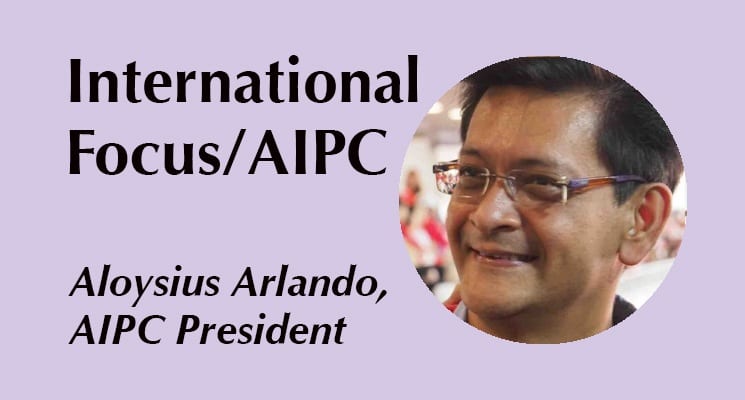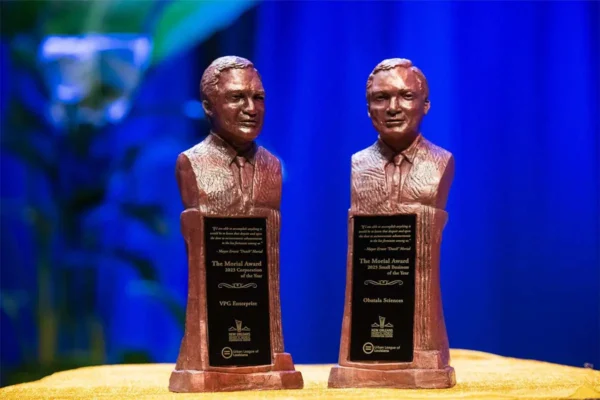by Aloysuis Arlando
At what is likely to be seen as the height of the COVID-19 pandemic, centers around the world are engaging with clients and communities in some very different ways—all of which will leave them better positioned to play their role in driving not only industry recovery but recovery in all those other areas—economic, professional, educational and social—that will be so desperately needed to return to some form of normalcy.
Globally, they are repurposing to engage in emergency and overflow uses that are becoming essential to how communities respond to the immediate demands of the crisis—not only as hospitals but staging areas, testing facilities, emergency accommodation and critical storage. The lessons they learn will enable them to better accommodate future events where security and health confidence will be an essential component of giving nervous delegates the confidence they will need to re-engage.
At the same time, they are redeploying and maintain many services that would otherwise risk the kind of deterioration that many businesses are likely to experience in a world of enforced reductions in activities. Kitchens are serving larger community and emergency health needs, exhibition setup crews are creating hospital rooms from modular hard-wall supplies; electricians are wiring new medical facilities—all resources that will be needed to re-build event capabilities once the wave has passed.
How else will centers be better prepared to a return of business?
First, they will have fine-tuned policies and resources to manage events safely in the face of ongoing health and safety concerns. These in turn will be closely tied into other local resources that are not necessarily available or even known to organizers.
Secondly, they will have gained even more experience and insights into how their venue facilities and service resources can be used to greater advantage. This means they can suggest new ideas, including in areas like social distancing and other protocols that are becoming more important under what will likely be ongoing expectations. It also means they will have insights into how events may be reconfigured to better accommodate different event sizes and formats that may be part of a transition moving forward.
Third, they will be on top of a supplier situation that is likely going to be very different than in the past as many companies experience staff reductions and changes arising from the economic impacts that are accompanying the pandemic, and the need many will have for consolidating or re-configuring their organizations and offerings. This may well result in changes of both products and relationships, and here again, centers are going to be in the best possible position to advise on local and regional resources, based on their ongoing experiences with other clients and events on their premises.
Finally, centers and their technical and A/V suppliers will have had a lot of opportunity to advance their knowledge and capabilities around the requirements of hybrid and remote meetings and content. The demand for webinars and other interactive components was already growing rapidly before the pandemic, but are likely to be even more important moving forward, particularly in the transition period—and here again the center will be well equipped to deliver the best possible advice and services.
At a time when many parts of the global economy are slowing or already dormant, centers are carrying on and learning in the process. As a result they will be in the best possible position to help organizers respond to the kinds of adaptations that will be needed to restore the industry to full strength and organizers should be planning how best to utilize this as we all move forward.
In addition to his role as AIPC President, Aloysius Arlando is the CEO of SingEx Holdings, which comprises several entities focusing on the MICE business; including the management of the Singapore EXPO Convention and Exhibition Centre. He is also the president of the Singapore Association for Convention and Exhibition Organizers and Suppliers (SACEOS), organizer of Singapore MICE Forum.
AIPC represents a global network of more than 190 leading centers in 64 countries with the active involvement of more than 1,000 management-level professionals worldwide. It is committed to encouraging and recognizing excellence in convention center management, based on the diverse experience and expertise of its international representation, and maintains a variety of educational, research, networking and standards programs to achieve this. AIPC also celebrates and promotes the essential role of the international meetings industry in supporting economic, academic and professional development and enhancing global relations amongst highly diverse business and cultural interests. For more info, visit www.aipc.org.
This story originally appeared in the May/June issue of Exhibit City News, p. 28. For original layout, visit https://issuu.com/exhibitcitynews/docs/ecn_may-june_2020






























